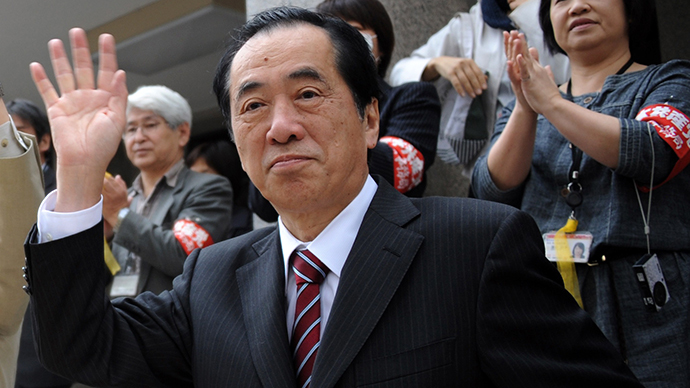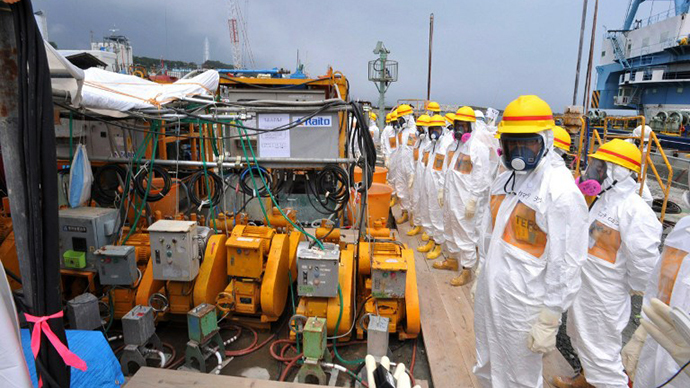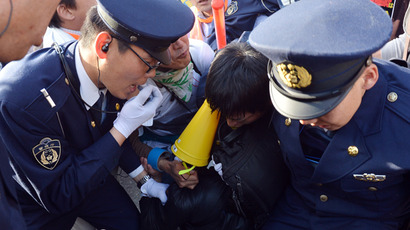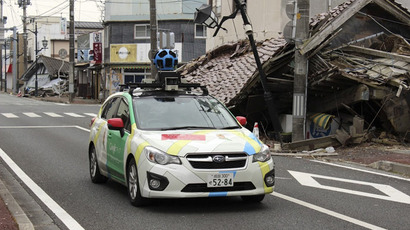Faultless in Fukushima: Media says ex-Japan PM escapes blame over nuclear accident

Japanese prosecutors are unlikely to press charges against former prime minister Naoto Kan, as well as utility executives, over their handling of the 2011 Fukushima nuclear disaster, dealing a blow to citizens affected by the accident.
Prosecutors had questioned Kan, who was prime minister at the
time of the accident, as well as former TEPCO president Masataka
Shimizu, the Asahi newspaper reported on Friday.
The complaints were filed by citizens affected by the disaster,
the paper said.
The Fukushima crisis, triggered by a massive 9.0-magnitude
earthquake and ensuing tsunami that struck off the northeast
coast of Japan on March 11, 2011, represents the world's worst
atomic disaster since the Chernobyl nuclear accident of 1986.
Some 500,000 people who lived inside the 30 km radius of the
Fukushima nuclear facility were instructed to evacuate from the
region.
Today, over two years since that horrific accident, TEPCO
has failed in its efforts to halt the flow of
radioactive water spilling into the Pacific Ocean, in what could
very well become an environmental crisis of epic
proportions.

Meanwhile, many of the individuals who were affected by the
disaster – from local fishermen who lost revenue, to homeowners
who are still unable to move back into their homes – are hoping
to gain compensation for their suffering in the courts.
Prosecutors concluded, however, that it was difficult to prove
that the accused could have predicted such a big earthquake and
tsunami as well as to establish a causal relationship between the
nuclear disaster and deaths and injuries among evacuees. A formal
decision by the prosecutors is likely as early as this month, the
Asahi said.
The preliminary decision, however, seems to fly in the face of
earlier comments by TEPCO that the disaster could have been
avoided.
In October 2012, the company said in a statement that it was
aware safety improvements were lacking before Fukushima
experienced three meltdowns following the 2011 tsunami, but it
had feared the “political, economic and legal consequences” of
implementing them.
“When looking back on the accident, the problem was that
preparations were not made in advance,’’ TEPCO’s internal
investigative commission, led by company President Naomi Hirose,
said in the statement. “Could necessary measures have been
taken with previous tsunami evaluations? It was possible to take
action” by applying more extensive safety measures, the
commission admitted.
The taskforce said the energy giant was wary that efforts to
better protect nuclear facilities from severe accidents such as
earthquakes and tsunamis would spark anti-nuclear sentiment,
increase insurance costs and ramp up litigation procedures.
The reported conclusion from the Japanese prosecutor comes as
Fukushima energy giant Tokyo Electric Power Co. (TEPCO) continues
its years-long efforts to contain radioactive water that is
pouring from the disabled nuclear plant, prompting calls from the
public for the government to take action.
The Japanese government will take immediate steps to assist TEPCO
handle the tons of contaminated groundwater spilling into the
Pacific Ocean, Japanese Prime Minister Shinzo Abe told a
ministerial meeting in Tokyo on Wednesday.
Cleanup efforts in and around the Fukushima plant are expected to
take many decades.














